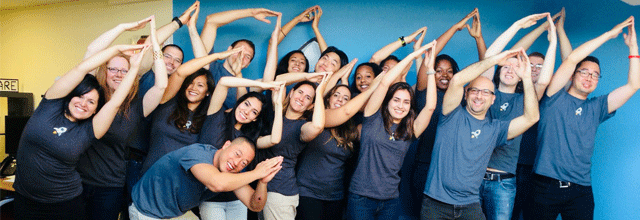
We can all agree that we rely on technology a lot these days to solve our problems. Whenever we face an issue, one of the first things we do is go to our web browser (on the computer or on mobile devices) and search through Google using keywords that best describe our problem besides contacting the support team directly.
In the support world, we are presented with various scenarios everyday that we are either familiar with or something completely out of our knowledge. You either know it or you don't. While we are able to solve issues with existing information which can potentially involve knowledge base articles / bugs report / suggestions, some issues only involve a 1-1 interaction between the reporter, assignee(s), and the participants through the support. When an issue gets resolved, the information and steps to solve the problem is only visible to those who have access to it. It means that the knowledge does not get shared publicly to other users who might run into similar product behavior. New users who bump into the problem end up reaching out to support and in certain cases, they get frustrated when any of the following takes place:
- The duration taken to solve the problem takes too long
- The solution or workaround they came across in public articles did not help to solve the problem
- There is no content they found on the Internet that describes and provides solution to their issue
This is where the concept of knowledge centered support comes into play (in short KCS). It focuses on the following points:
- Integrate the reuse, improvement, and creation of knowledge into the problem solving process (if it doesn’t exist)
- Evolve content based on demand and usage
- Develop a knowledge base of collective experience to date
- Reward learning, collaboration, sharing, and improving
4 Main Principles of KCS
You probably might have encountered this at one point throughout the years of working in a support organization but did not get the chance to fully capture the idea. These are the core principles that can help you have a better understanding of KCS:
Abundance
Take food versus knowledge, for example. When you share your food with others, you might lose a portion of it and might not be as full as you would expect when you eat a full meal. Knowledge, on the other hand is abundant. When you share your knowledge with others, you won't lose a portion of that.
“If you have an apple and I have an apple and we exchange these apples then you and I will still each have one apple. But if you have an idea and I have an idea and we exchange these ideas, then each of us will have two ideas.”
-George Bernard Shaw
Best of all, you will gain more when you share your knowledge with others by exchanging ideas and thoughts.
Takeaway: The more we share, the more we learn!
Create value
Your product. Your knowledge. The best people to create and maintain knowledge are those who actually use it everyday, which is us. Keep in mind that knowledge is a byproduct of interaction & experience. Not all knowledge are equal in complexity & impact. Ensure that whatever knowledge available, be it simple or complex, delivers its value to the users.
Takeaway: Understand your product. Bring impact to your audience.
Demand driven
What knowledge should we get and how valuable is it? How do we capture the knowledge (knowledge base, official documentation, issue / bug tracker, community forums, internal documentation / portal?). Reuse the content that has existed and create new ones when necessary. Focus should be driven by the demand of those we serve (not just customers but peers). It is important to take note that we will not spend time reviewing or improving knowledge that will never be reused as it does not create value in the long run (for example, EOL products).
Takeaway: Is the knowledge needed? If yes, create and maintain it. Else, review existing, valid ones and improve them.
Trust
When trust is present, people do better work and more of it. When it is absent, it is a source of great dysfunction. Develop a belief that the appropriate KCS mechanisms are in place to capitalize on our collective experience and will provide people with access to the best information available, at the right time. Apathetic or unengaged employees are death to any knowledge management initiative. So, it is important for your team to understand and believe in KCS.
Takeaway: Believe in the system and it will benefit everyone in the future
Final thought
Though KCS sounds promising, it will take the effort of the team to make it successful. With the right attitude Start to look at support in the bigger picture. Imagine the time you can save from cracking your head to solve a problem that already has a solution to it. Imagine how happy your customers will be when you provide them with a great experience through accurate solutions timely. Sound pretty exciting, doesn't it?
Do you start to see the benefit of KCS and the impact that it can potentially bring to your support organization? Give it a shot and share your thoughts in the comments below.
